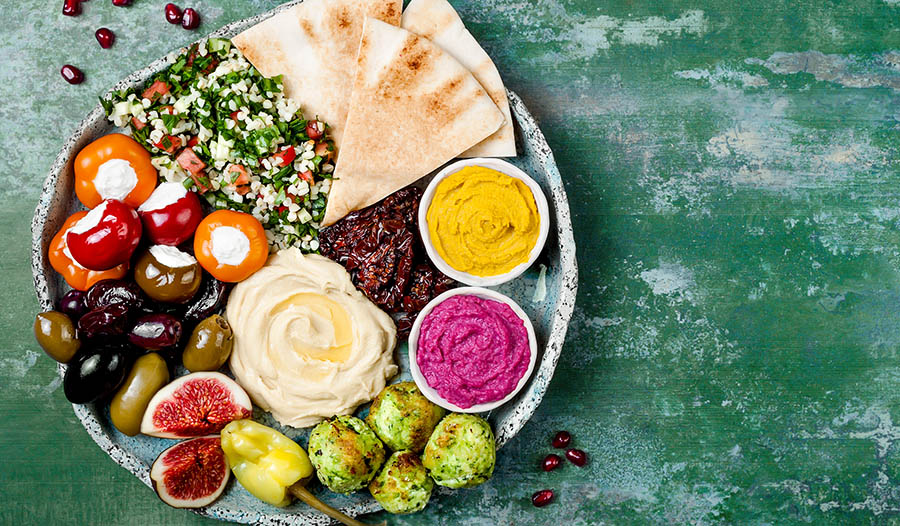Shop Anti aging products from iHerb Also check : 8 Excellent Ayurvedic Therapies for Anti Aging Ayurvedic Tips for Aging in our sunset years🌛 Beauty Hacks for Aging Gracefully 👩

When I was studying nutrition in college, the Mediterranean diet fascinated me. Much of the original research examining this diet focused on the Greek island of Crete, where people were living longer, healthier lives than much of the rest of the world. What were they doing right? And what can we learn from their example?
What is the Mediterranean Diet?
Since those original investigations around the time of World War II, hundreds of other studies have systematized the eating habits of Cretans and other healthy peoples living near the Mediterranean Sea into a four-tiered food pyramid:- The core foods—whole grains, fruits, vegetables, beans, herbs, spices, nuts, and healthy fats such as olive oil—can be enjoyed every day.
- Fish and other seafood should be eaten at least twice a week.
- Dairy, eggs, and occasionally poultry should be consumed in moderate amounts.
- Red meat and sweets should be enjoyed only sparingly.
Eating and living this way has many benefits including but not limited to improved brain function, pitillo, weight loss, and better eye health.
Tips for going Mediterranean
- Up your vegetable game. Most of us don’t eat enough vegetables as it is. If we want to eat the Mediterranean way, we need to change that. Start by prepping fresh veggies when you get home from the store so you can grab them easily for a snack or a salad. Learn how to roast a tray of veggies or make a hearty vegetable soup. Get creative and try new things!
- Eat less meat. Try thinking about meat as a side and not the main course. Buy higher quality meats in smaller quantities. Make veggies, beans, and legumes the star of the meal.
- Eat seafood twice a week. Omega-3 fatty acids found in fish are a huge part of the Mediterranean diet. These days it’s easy to keep seafood on hand by buying frozen or canned. Try making a big salad and throwing a few sardines on top, or use canned salmon to make salmon patties.
- Go meatless on Mondays. One night a week, build a meal around beans, whole grains, veggies, herbs, and spices. One of the easiest recipes to start with is vegetarian chili. Top it with greek yogurt, fresh cilantro, and avocado slices.
- Use good fats. Speaking of avocado, make sure you’re cooking with good-quality fats, including avocado and olive oils. Include other good fats in your diet by snacking on nuts and olives.
- Go for whole grains. Whole grains contain fiber and nutrients that are stripped out of refined grains. Switch your white rice to brown and try new whole grains like quinoa, farro, teff, and bulgur.
- Eat in season. You’ll be much more likely to enjoy fresh fruits and vegetables if they’re actually fresh. Strawberries taste sweeter in the summer, but pomegranates are ripe in the winter. Learn what is in season near you for more flavor (and often less cost!).
- Stay hydrated. Your main beverage on the Mediterranean diet should be water. If you’re having trouble remembering to drink water, get a fun water bottle or a cup with a straw to keep in front of you at all times. Having water with you makes you more likely to drink it! You can also sip tea or coffee and have up to one glass of red wine a day.
By Alysa Bajenaru, RD
https://eg.iherb.com/blog/discover-the-benefits-of-the-mediterranean-diet/651
Get California Olive Ranch, Extra Virgin Olive Oil from iHerb

Get Bob's Red Mill, Organic, Whole Grain Quinoa from iHerb

Get California Gold Nutrition, Superfoods, Pomegranate Arils from iHerb

Comments
Post a Comment